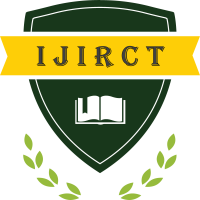Integrating Machine Learning for Comprehensive Water Quality Indexing: A Random Forest Regressor Approach
Author(s): Saloni V. Trivedi, Riya V. Gupta
Publication #: 2411096
Date of Publication: 01.12.2024
Country: India
Pages: 1-11
Published In: Volume 10 Issue 6 December-2024
DOI: https://doi.org/10.5281/zenodo.14294279
Abstract
This research seeks to enhance water quality assessment by utilizing machine learning, particularly the Gradient Boosting Regressor, to improve both user categorization and predictions of water potability. The primary objectives include implementing the Gradient Boosting Regressor, assessing its performance, using preprocessing techniques such as standard scaling and KNN imputation, and optimizing the algorithm via hyperparameter tuning. The methodology starts with comprehensive data collection, exploration, and refinement through feature engineering and selection. Several machine learning models, including ensemble techniques, are trained and rigorously evaluated to identify the most suitable approach. Using Python libraries like Pandas and NumPy, the dataset is meticulously cleaned, addressing missing values and outliers to maintain data integrity. Descriptive analytics, correlation heatmaps, and regression plots are employed to uncover data patterns and relationships. In the model development phase, Logistic Regression and Gradient Boosting Regressor are trained, with hyperparameter tuning conducted through GridSearchCV, while performance metrics such as R² score and mean squared error inform the final model selection. The anticipated result is a reliable predictive framework capable of outperforming traditional Water Quality Index (WQI) models in accurately classifying water potability. By integrating feature scaling, KNN imputation, and addressing class imbalance through resampling, the model’s robustness and fairness are enhanced. Ultimately, this research emphasizes the transformative role machine learning can play in water quality management, delivering actionable insights that aid policymakers and stakeholders in ensuring access to safe drinking water through a scalable, data-driven solution.
Keywords: Machine Learning, Gradient Boosting Regressor Water Quality Assessment, Feature Engineering, Hyperparameter Tuning
Download/View Count: 316
Share this Article
